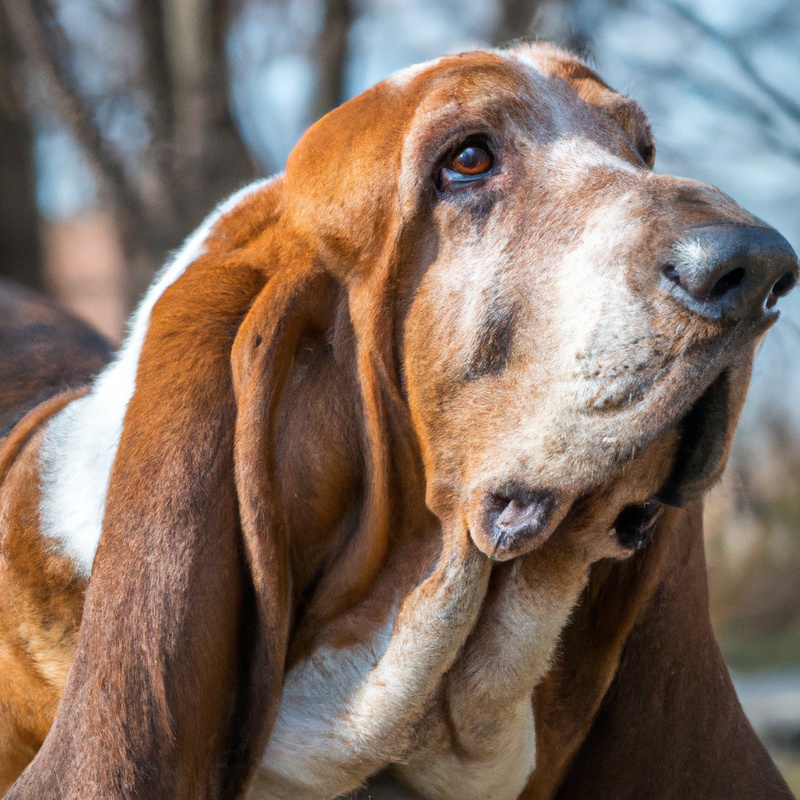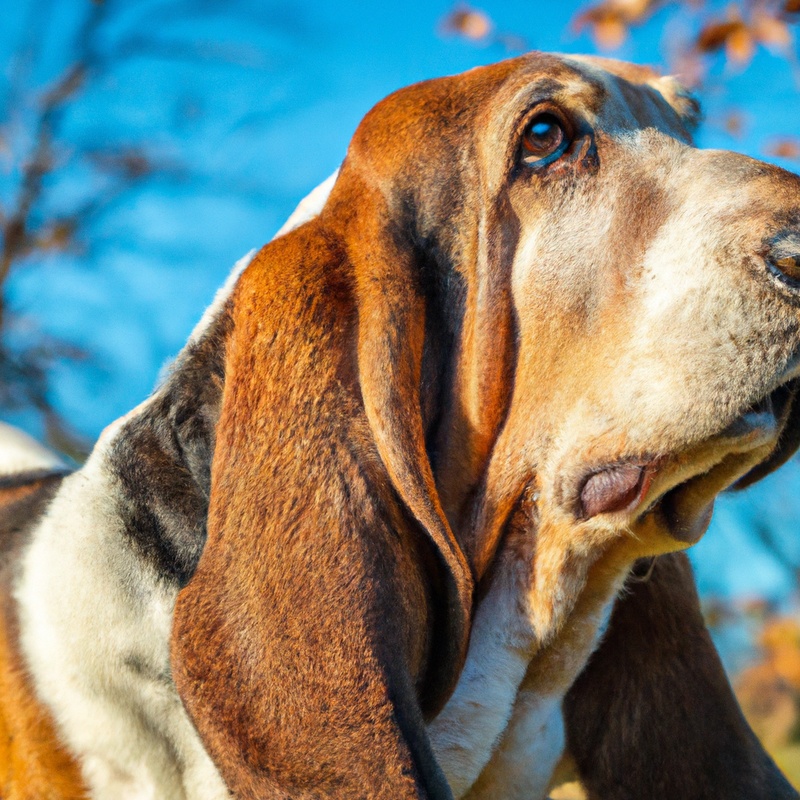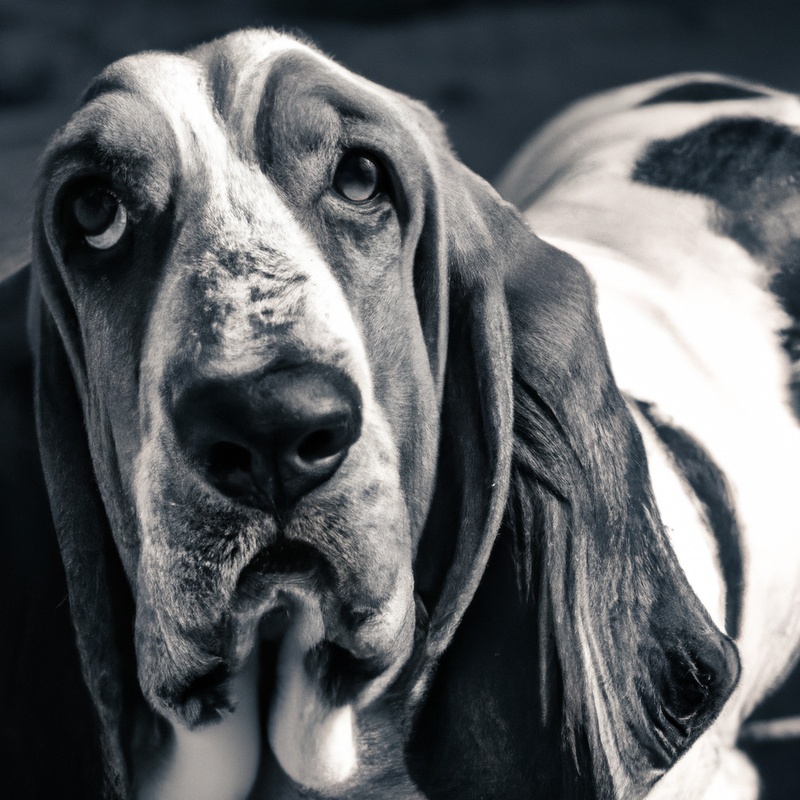How Do Basset Hounds React To Being Left Alone For Multiple Months?
Key Takeaways:
- Basset Hounds may experience separation anxiety when left alone for extended periods.
- They are prone to engaging in destructive behaviors in response to prolonged isolation.
- Basset Hounds require regular social interaction and mental stimulation to prevent behavioral issues.
- Proper training and gradually increasing alone time can help Basset Hounds adapt to being left alone.
Are you wondering how your beloved Basset Hound would cope if you had to leave them alone for an extended period? Well, you’ve come to the right place! As an expert in canine behavior and a proud Basset Hound owner myself, I understand the unique temperament and needs of these adorable droopy-eared companions.
In this article, we will delve into the fascinating world of Basset Hounds and explore how they react to prolonged periods of solitude.
We’ll also discuss practical tips to prepare them for being left alone, seek alternatives, and address the potential consequences of extended absence. So, let’s get started and ensure the well-being of our loyal four-legged friends!
| Factors | Reactions |
|---|---|
| Separation Anxiety | High likelihood of developing separation anxiety |
| Depression | Potential for depression and lethargy |
| Destructive Behavior | May exhibit destructive behavior (e.g., chewing, digging) |
| Excessive Barking | Increased tendency to bark excessively |
| Health Issues | Higher risk of developing health issues due to stress |
| Agitation | Increased agitation and restlessness |
Understanding Basset Hounds’ temperament and behavior
Basset Hounds’ reputation as a pack animal
Basset Hounds have a reputation for being pack animals, just like their ancestors, the hunting hounds.
They thrive on companionship and enjoy being part of a family.
They are known to form strong bonds with their human pack members and can feel lonely and anxious when left alone for long periods.
It is important to consider their pack-oriented nature when planning their care and ensure they receive adequate social interaction and companionship to prevent separation anxiety.

Separation anxiety in Basset Hounds
Basset Hounds are known for their sweet and gentle nature, but they can also experience separation anxiety when left alone. This is a common issue among many dog breeds, and Basset Hounds are no exception.
When they become anxious, they may exhibit behaviors such as excessive barking, howling, destructive chewing, and even soiling the house.
It’s important to address separation anxiety in Basset Hounds to ensure their well-being and create a calm environment for them.
How Basset Hounds react to being left alone
Basset Hounds are known for their loyalty and affectionate nature, so being left alone for extended periods can be challenging for them.
They may experience separation anxiety, which can manifest in behaviors like excessive barking, destructive chewing, and indoor accidents.
Additionally, Basset Hounds are pack animals, so being alone for long periods can contribute to feelings of loneliness and sadness.
It’s important to gradually introduce them to alone time, provide a safe and comfortable space, and ensure they receive sufficient mental and physical stimulation to mitigate these reactions.
Preparing Basset Hounds for being left alone
Gradual introduction to alone time
To gradually introduce your Basset Hound to alone time, start by leaving them alone for short periods, like 10-15 minutes, and gradually increase the time. This will help them adjust and feel more comfortable being alone.
Make sure to provide them with toys and treats to keep them engaged and mentally stimulated while you’re away.
Additionally, create a safe and comfortable space for them, such as a crate or a designated area with their bed and favorite toys. Slowly building up their tolerance to alone time will help them adapt and reduce the risk of separation anxiety.
Providing a safe and comfortable space
When it comes to providing a safe and comfortable space for your Basset Hound, there are a few key considerations. Firstly, make sure the area is secure and free from any potential hazards or items that could be chewed on.
Additionally, providing a cozy bed or crate can help them feel secure while they’re alone.
Remember to leave some toys or puzzle feeders to keep them mentally stimulated. Lastly, make sure the temperature is comfortable and there is access to water at all times.
By taking these steps, you can help create a safe and comfortable environment for your Basset Hound when they are left alone.
Ensuring mental and physical stimulation
To ensure mental and physical stimulation for your Basset Hound, here are a few important considerations:
- Regular exercise: Basset Hounds have a moderate activity level, so daily walks and playtime are essential for their well-being.
- Mental enrichment: Engage your Basset Hound’s intelligence with puzzle toys, treat-dispensing toys, and interactive games.
- Social interaction: Basset Hounds thrive on companionship. Provide opportunities for socialization with other dogs or consider organized playdates.
- Rotate toys: Keep your Basset Hound’s interest by rotating their toys regularly. This helps prevent boredom and keeps their mind stimulated.
- Training sessions: Training not only provides mental stimulation but also strengthens the bond between you and your Basset Hound.
Remember to tailor the activities to your individual dog’s needs and preferences. Every Basset Hound is unique, so pay attention to what keeps them engaged and happy.

Seeking alternatives to leaving Basset Hounds alone for multiple months
Enlisting the help of a trusted pet sitter or doggy daycare
Enlisting the help of a trusted pet sitter or doggy daycare is a great way to ensure your Basset Hound is well taken care of when you’re away for multiple months.
A pet sitter can come to your home and provide companionship, exercise, and feed your dog according to their routine.
Doggy daycare facilities offer a supervised and interactive environment where your Basset Hound can socialize with other dogs and receive plenty of attention.
These options minimize stress and loneliness for your furry friend while you’re unable to be there.
Considering boarding options for extended periods
If you are considering boarding options for extended periods, there are a few things to keep in mind.
First, research and visit different boarding facilities to find one that meets your Basset Hound’s needs.
Look for clean and comfortable accommodations, experienced staff, and opportunities for exercise and socialization.
Second, ask about the daily routine and if they can provide any extra attention or enrichment for your dog.
Lastly, make sure you inform the boarding facility about any specific dietary requirements or medical needs your Basset Hound may have.
Exploring the possibility of temporarily rehoming
If you’re considering leaving your Basset Hound alone for multiple months, exploring the possibility of temporarily rehoming them is an option to consider. By finding a trusted friend, family member, or even a foster family who can provide a loving and safe environment, you can ensure that your Basset Hound receives the attention and care they need while you’re away.
This can help alleviate any potential stress or anxiety they may experience from extended periods of isolation.
Just be sure to thoroughly vet the temporary home and maintain regular communication to ensure your Basset Hound is happy and healthy.
Addressing the potential consequences of leaving Basset Hounds alone for multiple months
Negative impact on mental and physical health
Leaving Basset Hounds alone for multiple months can have a negative impact on their mental and physical health. The prolonged absence can lead to feelings of loneliness, anxiety, and depression in these social animals.
They may become bored and experience frustration, which can manifest in destructive behaviors.
Additionally, the lack of exercise and mental stimulation can result in weight gain and overall decline in physical health. It is crucial to provide regular companionship, mental stimulation, and physical activity to ensure the well-being of Basset Hounds.

Behavioral changes and challenges
Basset Hounds can experience behavioral changes and challenges when left alone for multiple months. They may exhibit signs of separation anxiety, such as excessive barking, destructive behavior, or soiling in the house.
They may also become more withdrawn, depressed, or show a lack of appetite.
Additionally, extended periods of isolation can lead to a decline in their overall mental well-being and may strain the bond between the dog and their owner. Rebuilding trust and addressing these behavioral changes will require patience, consistency, and potentially seeking professional help.
Rebuilding trust and bond after prolonged absence
After a prolonged absence, rebuilding trust and bond with your Basset Hound is essential. Take it slow and be patient.
Spend quality time together, engaging in activities your dog enjoys.
Provide positive reinforcement and rewards for good behavior. Consistency is key, so establish a routine and stick to it.
Gradually reintroduce any previously stressful situations or triggers.
Seek professional help if needed. Remember, a strong bond and trust will take time and effort, but it is worth it for a happy and healthy relationship with your Basset Hound.
Final Verdict
Leaving a Basset Hound alone for multiple months can have significant negative consequences on their temperament, behavior, and overall well-being. Basset Hounds are pack animals and thrive on companionship, making them prone to separation anxiety when left alone for extended periods.
However, by actively preparing your Basset Hound for alone time, such as gradual introduction, creating a safe space, and providing mental and physical stimulation, you can mitigate the negative effects.
Additionally, seeking alternatives like pet sitters, doggy daycare, or temporary rehoming can help prevent the detrimental consequences of prolonged absences. Ultimately, it is crucial to prioritize the mental and physical health of your Basset Hound to maintain a strong bond and ensure their happiness.








